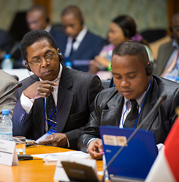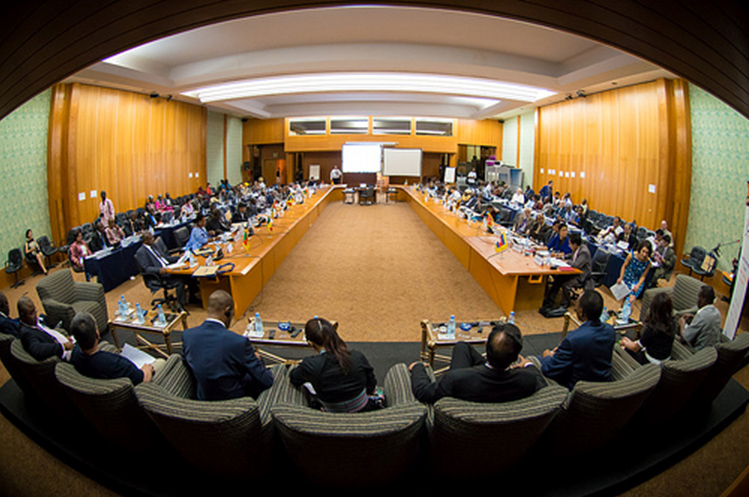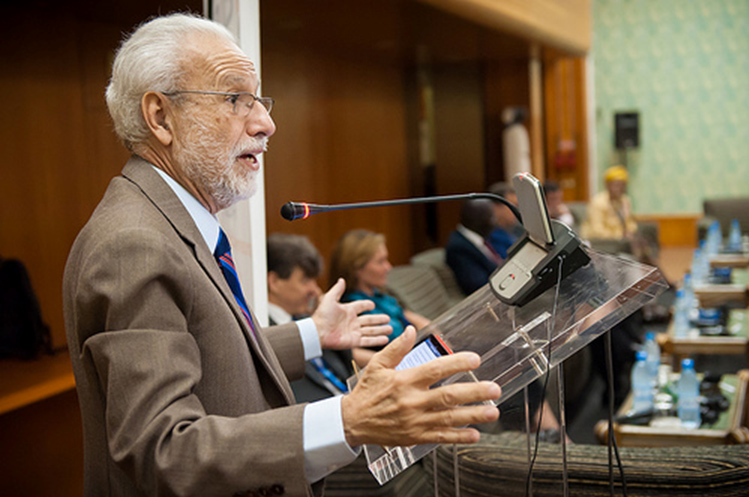
Editor’s note: The author Executive Vice President of the Sabin Vaccine Institute, a non-profit organisation dedicated to reducing needless human suffering from vaccine-preventable and neglected tropical diseases
While we’ve achieved success, we need to continue planning for the future. Greater political commitment and advocacy are necessary if we are to achieve the goals set forth in the Global Vaccine Action Plan (GVAP), a framework for extending the full benefits of immunization to every man, woman and child by 2020. In particular, we must ensure that countries develop long-term plans for financing their own immunisation programmes and reduce their dependence on outside support from development partners like GAVI Alliance, the World Health Organization, UNICEF, and other development partners such as development agencies and philanthropic foundations, which currently cover nearly 50% of the global costs associated with immunisation.
As part of a coordinated effort to address the gap in self-financing, the Sabin Vaccine Institute convened representatives of 17 countries in Dakar, Senegal from August 5-6, 2013 at the Second Sustainable Immunization Financing Colloquium. More than 100 participants, including Ministers of Health, Ministers of Finance, parliamentarians and other government officials gathered to openly exchange strategies and best practices for increasing their ownership of immunisation programmes.

More than 100 delegates from 17 countries gathered at King Fahd Palace Hotel in Dakar, Senegal to discuss strategies and create action plans to increase country ownership of immunisation programmes.
Photo by Clement Tardif.
New Strategies: from Laws to Resource Tracking
Since the first colloquium, held in Addis Ababa, Ethiopia in 2011, countries involved in Sabin’s Sustainable Immunization Financing Program have been working to increase their commitments to immunisation through two vehicles: new laws and innovative financing.
The second colloquium in Dakar revealed that countries had moved forward on their proposed plans of action and had drafted new bills to support immunisation programmes. Countries discussed their experiences in moving these bills through the legislative process and brainstormed ways to accelerate the timetable for passing the bills into laws. Several attendees shared their efforts to entrench support for immunization in the legislature through forming parliamentary forums on immunisation.
Hon. Oleru Huda, a member of Uganda’s parliament, noted that her country is “making significant progress in developing new funding sources for immunization through our own national legislature. We have received positive feedback that the bill will not present a financial burden on our state, and furthermore will benefit the population by reducing illness and death from vaccine-preventable diseases.”
On a parallel track, countries displayed progress in their efforts to increase budgetary allocations to immunisation. Several countries explained their successful efforts to create new “ring-fenced” funds specifically for immunisation. In one case, government is matching private sector donations to the fund. Others are identifying new revenue sources, such as excise taxes on cellular phone calls, as a way to pay for immunisation.
Regardless of the method, it was evident that many countries are developing their own innovations and solutions. In a peer review session, Ministries of Health were found to be developing 80% of new financing and budget practices. Parliaments were collaborating in 59% of the cases. In half of the cases, government financing and legislative innovations were developing in tandem. An earlier analysis showed that nine study countries had improved their immunization budget performance during 2010-12 through their innovations.
The discussions and data presented in the Dakar Colloquium showed that now is the time to move from the paradigm of partner’s dependency to one of country ownership of the national immunisation programmes.
Learn more about Sabin’s Sustainable Immunization Financing programme at www.sabin.org/sif.

Sabin executive vice president Dr. Ciro de Quadros addresses the Second Sustainable Immunization Financing Colloquium
Photo by Clement Tardif




